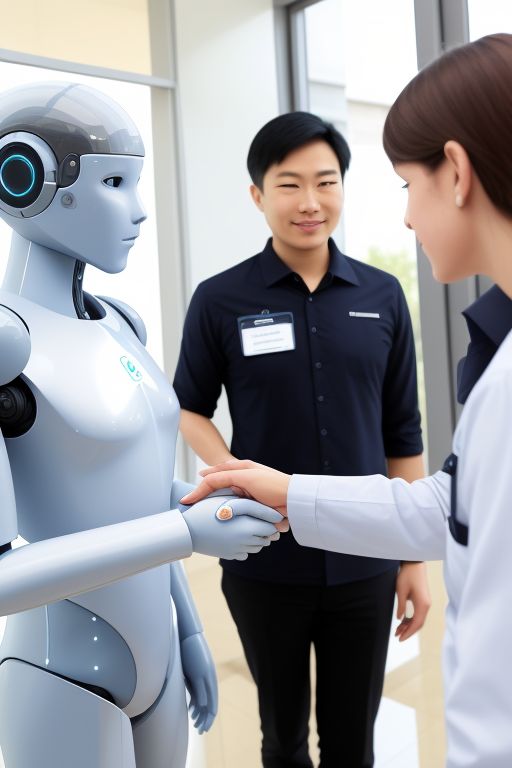Imagine this scenario: You’re the hiring manager for a prestigious tech company. You’ve spent countless hours sorting through resumes, carefully evaluating candidates’ qualifications and experiences. Yet, when you bring in the final round of applicants for interviews, you can’t help but notice a distinct lack of diversity among them. How is this possible when you prided yourself on being objective throughout the process?
The answer, my friend, lies in the insidious nature of unconscious bias – those deeply ingrained assumptions and stereotypes that influence our decision-making without us even realizing it. And this is where Artificial Intelligence (AI) comes in, offering a game-changing solution to level the playing field and create a truly unbiased hiring process.
Now, I know what you might be thinking: “But wait, isn’t AI just another technology that could perpetuate existing biases in the data it’s trained on?” Valid concern, but stick with me because AI has come a long way in addressing this very issue.
The Unconscious Bias Problem in Hiring
Before we dive into the AI solution, let’s take a closer look at the problem we’re trying to solve. Unconscious biases can manifest in various ways during the hiring process, such as:
- Resume Screening: Subtle biases can lead us to favor candidates with names or educational backgrounds that align with our preconceptions.
- Interview Evaluations: Factors like appearance, communication style, or cultural background can influence our perceptions, even if we don’t consciously intend it.
- Performance Assessments: Biases can creep into how we interpret a candidate’s responses, body language, or overall “fit” for the role.
These biases don’t necessarily stem from malicious intent; they’re simply the byproduct of our human experiences and the cognitive shortcuts our brains take to process information efficiently. But in the context of hiring, they can lead to missed opportunities and a lack of workforce diversity, which can ultimately harm an organization’s creativity, innovation, and overall performance.


The AI Solution: Objective and Fair Hiring
Enter AI, the unbiased gatekeeper that can help us overcome these unconscious biases and create a truly objective hiring process. Here’s how AI is revolutionizing the way we recruit and evaluate candidates:
- Resume Screening: AI-powered resume screening tools can analyze candidates’ qualifications and experiences without being swayed by factors like names, alma maters, or irrelevant personal details.
- Structured Interviews: AI-assisted interview platforms can provide standardized, job-relevant questions and scoring rubrics, minimizing the influence of subjective impressions.
- Skill Assessments: AI-driven assessments can objectively evaluate candidates’ technical abilities, problem-solving skills, and job-specific competencies, reducing the risk of biased evaluations.
- Data-Driven Decisions: AI algorithms can identify patterns and correlations in candidate data, helping organizations make more informed hiring decisions based on objective criteria rather than gut feelings or preconceptions.
But wait, I can hear the skeptics among you: “Isn’t AI itself susceptible to bias based on the data it’s trained on?” That’s a fair objection, but the beauty of modern AI lies in its ability to identify and mitigate biases through techniques like:
- Debiasing Training Data: AI developers are increasingly employing methods to remove biases from the data used to train AI models, ensuring a more objective foundation.
- Algorithmic Fairness: Advanced AI algorithms can be designed to actively minimize biases and ensure fair treatment of all candidates, regardless of protected characteristics like race, gender, or age.
- Continuous Monitoring: AI systems can be continuously monitored and audited for potential biases, allowing for ongoing refinement and improvement.
Real-World Success Stories
Still not convinced? Let’s look at some real-world examples of how AI is already transforming the hiring landscape and fostering more diverse, inclusive workforces:
- Unilever: The global consumer goods giant implemented AI-powered hiring tools that increased diversity in their candidate pools by 24%, while also reducing time-to-hire by 50%.
- Vodafone: The telecommunications giant used AI-driven assessments to identify high-potenti6g al candidates, resulting in a 25% increase in diversity among new hires.
- Pymetrics: This AI hiring platform claims to have helped companies like Unilever and Accenture increase their diversity hiring rates by up to 30%.
The benefits of unbiased hiring extend far beyond just creating a more diverse workforce. By removing unconscious biases, organizations can tap into a broader pool of talent, foster a more inclusive company culture, and ultimately drive better business outcomes.
Embracing the Future of Unbiased Hiring As compelling as the AI solution sounds, it’s important to acknowledge that it’s not a magic wand. Implementing AI hiring tools effectively requires careful planning, training, and ongoing monitoring to ensure fairness and compliance with legal and ethical standards. It’s also crucial to strike the right balance between AI-driven insights and human oversight, as some aspects of the hiring process still benefit from a human touch.
But for organizations truly committed to creating a diverse, inclusive, and high-performing workforce, the time to embrace AI-powered unbiased hiring is now. By harnessing the power of AI, you can remove the unconscious biases that have long plagued traditional hiring processes, and build a team that reflects the diversity of the world we live in.
So, what are you waiting for? Take the first step towards unbiased hiring today, and watch as your organization thrives in an environment where talent, not biases, takes center stage.








Leave a Reply